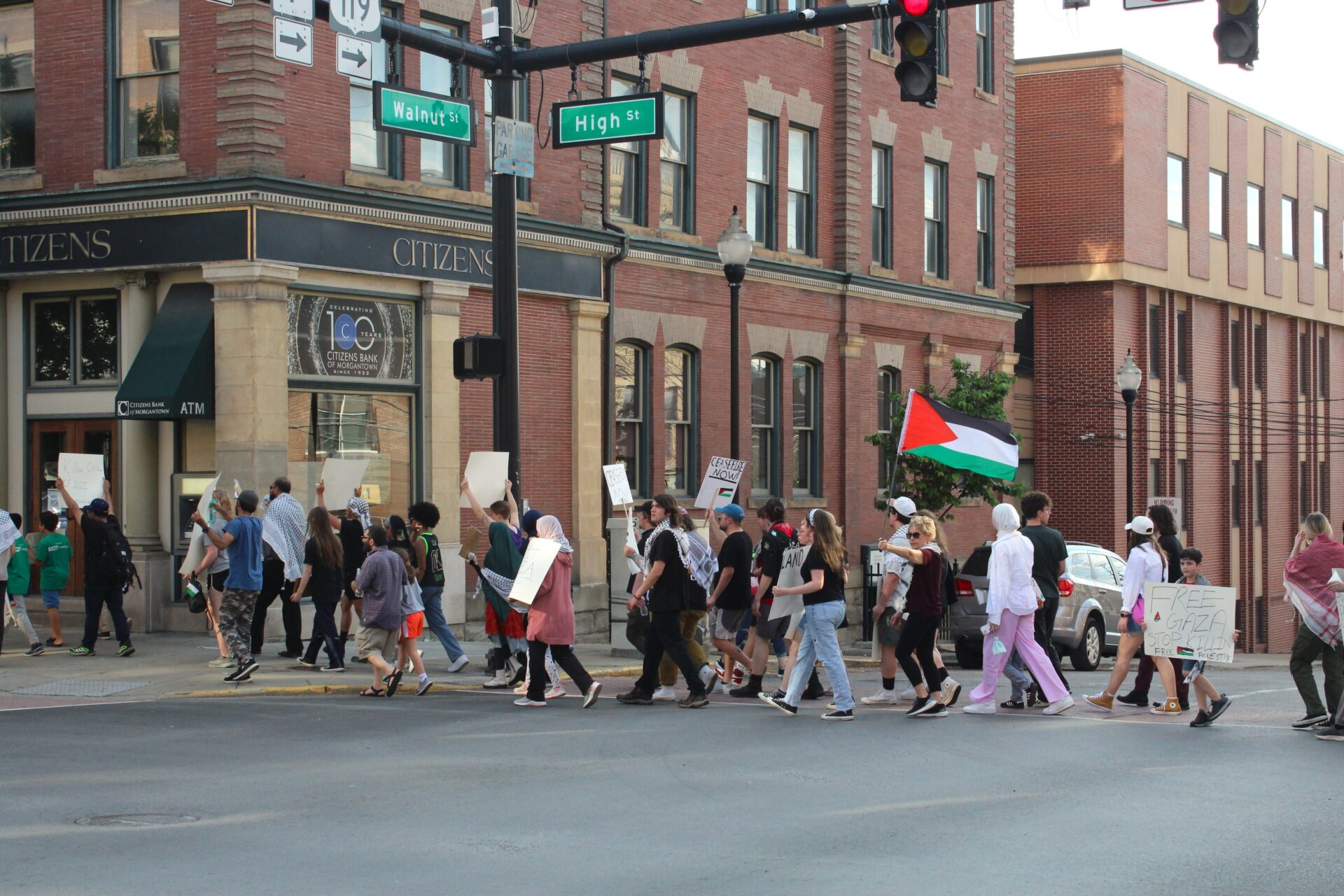Student protests in support of Palestine have emerged on college campuses across the country in the past few weeks Students at West Virginia University added their voices to the movement.
Protesters congregated in front of the Mountainlair, WVU’s student union Sunday evening. The group of about 75 people was made up of students as well as community members, many of whom had their young children in tow.
Gabe Jones is a senior at the university, and he hoped the demonstration shows WVU their determination.
“I would hope that just us being here helps to show WVU how many people here support a free Palestine, and how many people would support us divesting from supporting Israel,” he said.
Divestment from Israeli interests has been a consistent demand at protests on college campuses since encampments were established at Columbia University April 17.
Jones and others at Sunday’s action mentioned the sale of Coca-Cola, Starbucks and Sabra hummus as potential targets of divestment for the university.
“There are active ties here between WVU and both universities and companies that do support the current occupation,” Jones said. “There’s a lot of ways that the university is actively supporting and funding, in part this genocide and everyone here supports the idea that that should actively stop.”
South Africa accused Israel of committing a genocide in the United Nations International Court of Justice, claims which are currently being adjudicated.
Nada Mikky is the secretary of the Muslim Student Association at WVU and helped the group organize the protest. She said the demonstrators hope to show solidarity with Palestinians, as well as with students on other campuses. Locally, Mikky says the action hopes to push three goals on campus.
“First is for WVU to divest from any sending money to Israel, or anything that is supporting genocide,” she said. “Second is for the university to hopefully call for a ceasefire. And third is for them to at least be aware of what’s happening and hear our voices.”
Mikky said the turnout was a surprise given the short notice, as well as WVU entering its finals week. She also noted broad-based support from other religious groups.
“We did not expect this turnout, and gladly people, not even only from the MSA but also the Christian community, the Jewish community,” she said. “People that are from other communities, I think from the Jewish, they brought snacks and water for the protesters.”
Omar Ibraheem, president of the Muslim Student Association at WVU, said it is frustrating to know Israeli citizens can go to college for free.
“A lot of universities are actually investing in a foreign country, in a foreign military, and that money could be used to aid students,” he said. “Most students are in debt and all people in Israel get access to free education and free health care, whereas Americans don’t even have that.”
Ibraheem also expressed concern about First Amendment violations stemming from protests on other campuses.
“We’re watching students across campuses getting their First Amendment rights, something that is so embedded in America, we’re watching that getting stripped away,” he said. “Students are being arrested, suspended for their access of free speech on designated areas for free speech and protests.”
The group marched down to the Monongalia County Courthouse in downtown Morgantown and back to campus peacefully. A presence from the Morgantown Police Department served primarily to block intersections and ensure safe crossings for the march.
Students vow to take more action in the coming days.
